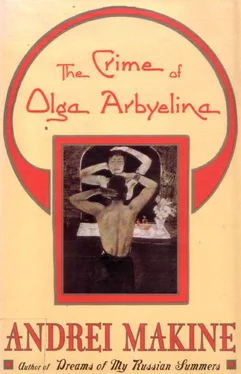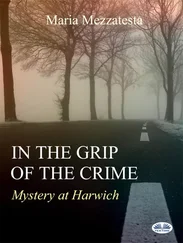"Look!" Her son's voice was muted now, speaking like one afraid to cause an echo in some terrible or holy place. "Another night of frost and they would all be dead…"
The surface of the pond was covered in ice; a single breach, smaller than a footprint, gave a glimpse of the black, open water. And the dark, glazed surface was streaked with incessant movements, a brief, frenetic shuddering, followed by a slow, drowsy rotation. Sometimes, in the watery reflection of the moon, there was a glint of scales; one could make out the shape of fins, the silvery patches of gills…
They began the rescue with excessive haste, as if these few fish trapped by the cold had only minutes to live. She watched her son plunging his hand into the icy water up to the elbow, and lifting out the slippery bodies, numbed by the lack of air and hardly struggling anymore. He released them into the bucket she held out to him and, lying down on the snow again, resumed his fishing. To ease his task she cleared the water of slivers of ice, pulled out skeins of weed, and occasionally helped him roll up the soaking sleeves of his jacket. Their hurried efforts merged everything into a feverish whole, the gestures, the crunch of snow under their feet, the glittering of the moon broken up on the black surface of the open water, the creaking of the ice, the trickle of the dripping water, their terse exchanges, like orders given on board ship in the midst of a storm. In this flurry their eyes met from time to time for a fraction of a second-and they were surprised at how much the silence of these exchanged looks was detached from their haste… She noticed that her son's right hand had several grazes on the knuckles. But there was so much ice and so much cold water around that the blood had scarcely made the skin pink and had stopped flowing. Perhaps for the first time since the boy's birth, she could contemplate his bleeding without anxiety and said nothing to him…
He released the fish, one by one, coming as close as possible to the icy river bank. Their bodies shuddered for a moment in his hand, then their quivering lives blended with the dark current, the cold, dense weight of which was palpable. After that he emptied the bucket, pouring out the rest of the water with several tufts of weed and lumps of ice. The tinkling of the last drops had a rare resonance, a purity that etched the outlines of the trees and rekindled the reflection of the moon in a frozen puddle. They looked at one another mutely: two ghosts with their faces silvered by the moon, their clothes in disarray; two motionless figures in the night on the bank of a smooth, impenetrable stream… A scrap of wind suddenly brought with it an imperceptible whisper of life, a faint mixture of shouts and music. She turned her gaze in the direction of the upper town.
"They're having a party down there," he said, as if in a daydream and without taking his eyes off the water that glittered at his feet.
"Down there," she repeated to herself as she walked beside him. "Down there…" So he, too, was conscious of living somewhere else.
In the course of that night on the riverbank he must have cut his knee without being aware of it in the flurry of the rescue. Next day a blood-filled swelling formed and grew rapidly larger. In the evening his temperature went up abruptly. On several previous occasions the doctor who was based in the upper town had refused to come. There was no longer a proper road between Villiers-la-Forêt and the Caravanserai, now swathed in darkness. She herself took a good quarter of an hour simply to make her way around the building and reach the main gateway. The footpath that followed the wall had disappeared; in certain places the squalls had sculpted long snowdrifts that barred the way.
She knocked at the house of the "doctor-just-between-ourselves." He opened it at once, although it was past midnight, as if he were expecting her visit. As he walked along with her, he kept up a conversation with professional sagacity about "the harshest winter for a hundred years." All the time he was operating, as on previous occasions, he gave vent to little whispering laughs. It was as if he did not believe what he was being told and had his own opinion on the boy's illness. "It's nothing at all, really nothing at all," he repeated, without interrupting his chuckles. And, just as before, he accompanied his actions with patter, like a fairground magician. "Now then. First of all, all nice and neat, we dra-a-a-in off all the fluid, like so-o-o-o! And now a mag-ni-fi-cent saline dressing…" Before leaving he leaned his face toward the boy and, still in the style of an illusionist, proclaimed, "And tomorrow you'll be back on your feet, all right? Like a real trooper." As he went out he said again, but this time in his normal voice, "Naturally, all this is just between ourselves."
Next day the boy got up… She noticed that it was only at these moments of unexpected and unhoped-for recovery that she prayed. The rest of the time her inner vows took the form of a continuous babble of words that she was scarcely aware of anymore. Her rare conscious prayers, on the other hand, included violent threats to the one they were addressed to and demanded a complete turnaround in her son's life, an impossible rehabilitation that must be possible because it was her son. And so that evening, with her face pressed into her hands, her lips dry with the whispering of silent words, she implored, insisted on a miracle… Later on, during the night, now calmer, she realized with bitter sadness that this miracle was linked to that strange personage, the "doctor-just-between-ourselves" who had opened his door to her, wearing an old, neatly pressed tuxedo, with a bow tie beneath his Adam's apple, just as if at midnight, in the dark and icy fortress of the Caravanserai, he were preparing to go to a party. "A poor madman, like all the rest of us here," she thought. The words of her feverish prayer came back to her now as a weary echo. Listening to them, she reluctantly admitted to herself that her secret hope was at least to delay the arrival of the next relapse, the next hemorrhage. Just to win a few days' respite, during which she could live with the illusion of a successful miracle, without feeling too ashamed of her weakness.
It was during those days, one evening, that he appeared in her room again…
The last week of the year was always a very singular time in the lives of the inhabitants of the Caravanserai. The days that came after Christmas and New Year's Day seemed suddenly to backtrack, for the Russian Christmas and New Year came two weeks later than the French celebrations and created the illusion of a fresh end to the year. This delay gave rise to an astonishing confusion in time; to a parenthesis that could not be found in any calendar; to a delight, often unconscious, at not being a part of the life that resumed its sad rhythm in January.
In that winter of 1947 those two lost weeks between the holidays, in the last days of the Russian December, seemed to the émigrés even more empty, even more detached from the ordinary life of Villiers-la-Forêt, than usual. On the ground floor occupied by the retirement home, in a small hall next to the refectory, they had brought in a Christmas tree, as they did every year. But this time there was nothing festive about the presence of the tree in this bleak, cold building: it felt more as if the forest were invading an abandoned house. One evening as she was leaving the library, Olga came upon a man twirling softly in front of the tree in the darkness. Hearing her footsteps, he fled. She realized that he had been waltzing all alone by the light of a candle fixed lopsidedly to one of the branches. She had an impulse to blow it out but did nothing, thinking that the man might perhaps be waiting for her to go before resuming his solitary twirling…
Читать дальше












